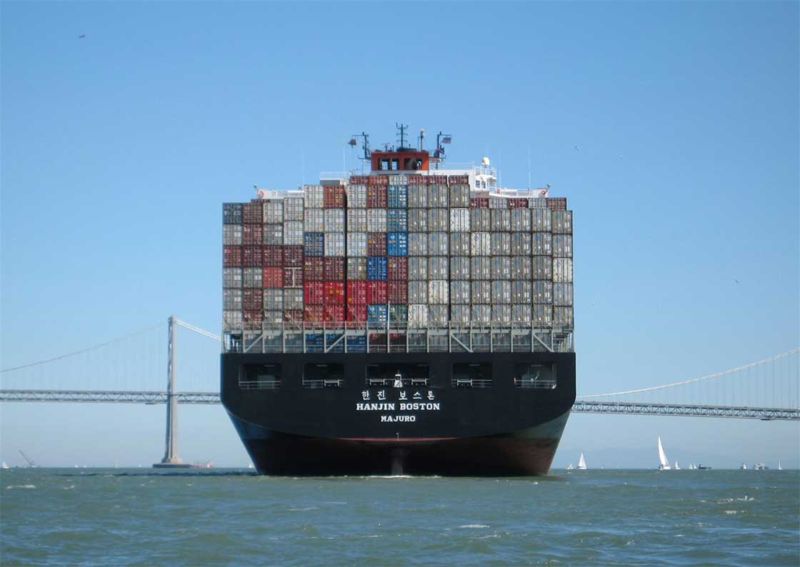The Purpose of International Trade
 International trade in physical goods is achieved by freight movement across national borders. Firms that source globally are internationalised. Firm-level internationalisation is achieved through FDI (foreign direct investment). FDI activity can be broadly summarised as buying, making, or selling in different territories. For all three of these activities, movement of goods (components, consumables, or finished products) is necessitated. The internationalisation process is intrinsically linked to movement of freight across borders. By this reasoning, the purpose of international trade and freight can be considered to be the actualisation of foreign business opportunities and the facilitation of transfer of capital from one global region to another. Borderless sourcing and selling (as enabled by e-commerce) is premised on international availability and instant capital transfer, i.e. technologically and logistically facilitated international trade. Freight that crosses national or economic union (e.g. EU) borders represents the conveyance dimension of an international transaction.
International trade in physical goods is achieved by freight movement across national borders. Firms that source globally are internationalised. Firm-level internationalisation is achieved through FDI (foreign direct investment). FDI activity can be broadly summarised as buying, making, or selling in different territories. For all three of these activities, movement of goods (components, consumables, or finished products) is necessitated. The internationalisation process is intrinsically linked to movement of freight across borders. By this reasoning, the purpose of international trade and freight can be considered to be the actualisation of foreign business opportunities and the facilitation of transfer of capital from one global region to another. Borderless sourcing and selling (as enabled by e-commerce) is premised on international availability and instant capital transfer, i.e. technologically and logistically facilitated international trade. Freight that crosses national or economic union (e.g. EU) borders represents the conveyance dimension of an international transaction.
Global markets and global supply bases are now normal. Purely national/domestic companies that both source and sell inside home nation borders are increasingly rare. The competition-enhancing factors that globalisation offers, such as the capture of labour cost differentials, access to huge emerging consumer populations, and the availability of materials from diverse locations are enticing companies away from domestic focus and driving them to adopt a multinational/ transnational business orientation. The availability of dependable logistics infrastructure and systems inside and between the world’s major foci of production and consumption allow this process.
Before discussing the purpose of international trade, it will be beneficial to give context by discussing the purpose of trade, which is to fulfil the human desire for advantageous transaction and to achieve the social and economic values that are made possible through productive effort, namely the institutions of work and profit that sustain individuals and societies.
International trade is transaction activity that occurs between and across parties separated by national borders. Its purpose differs little from that of basic trade, but in a globalised, predominantly capitalist world, social and economic interests intertwine deeply. Thus, so do national and foreign interests, to the degree that the economic conditions of nations are mutually impactful. Trade sustains political stability and provides work and sustenance to populations – all of which decline if trade decreases. International trade can be interpreted as the geographical maximisation of the possibilities of trade. It is in the interest of all commercially engaged, prosperity-seeking nations to conduct internal and external (domestic and foreign) trade in order to increase or maintain population wealth and living standards, stimulate technological progress, and achieve political and social stability.
